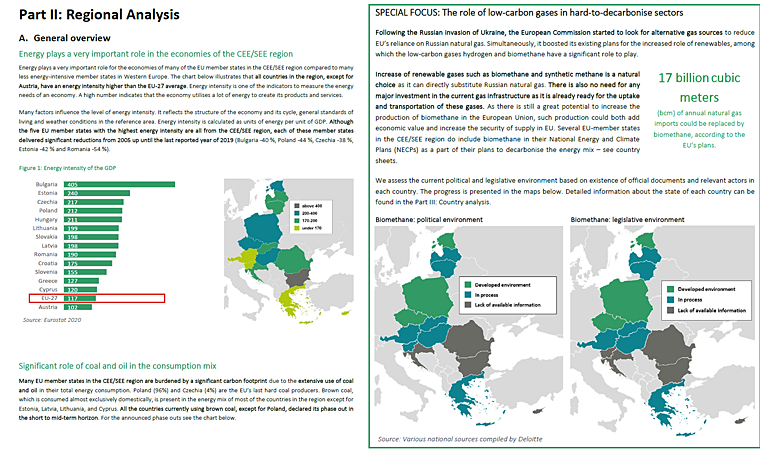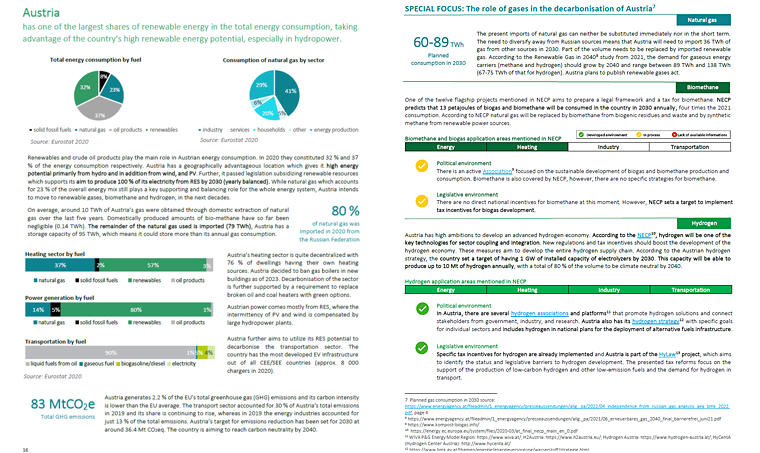November 16, 2022

National Assembly of Bulgaria, Sofia
Achieving a carbon-neutral economy by 2050 – as emphasised in the EU Green Deal – requires considerable efforts and involvement of all EU member states.
The Central & South-Eastern Europe Decarbonisation Report outlines the status of the energy transition in Central-Eastern and South-Eastern Europe. The 2022 edition of this annual report has been completely revised and updated and now includes up-to-date information on all 14 EU Member States from the region – Austria, Bulgaria, Croatia, Czech Republic, Cyprus, Estonia, Greece, Hungary, Latvia, Lithuania, Poland, Romania, Slovakia and Slovenia.
|
The report is based on publicly available data and is divided into two main parts.
Part II presents a high-level regional comparative analysis of energy mix and decarbonisation progress in various sectors of the national economies in the CEE/SEE region, including a sectoral overview of GHG emissions. Part II also includes specific information about the role of gases (hydrogen and biomethane) in the energy transition in the CEE/SEE region.

Part III includes key energy market figures, emissions figures, and the decarbonisation strategy for each EU member state in the region in separate country sheets in an easy-to-read format and alphabetical order. The country sheets also include a section with information regarding the role of natural gas, hydrogen and biomethane.

“Decarbonisation is key to meeting the ambitious emissions targets of the European Union, and many insightful studies are published addressing this topic every year. However, very few studies focus on decarbonisation efforts in Central and South-Eastern Europe. By publishing the Central & South-Eastern Europe Decarbonisation Report (2022 edition), GIE and Deloitte want to improve this geographical imbalance and provide comprehensive and easy-to-read information about the current decarbonisation challenges and strategies of the 14 EU member states in this region. Our hope is that this report will serve as a valuable information source for all stakeholders interested in reducing the emissions in this specific region.”
Erik Kolstø, GIE Board Member
| ||||||||
| Deloitte
Deloitte Czech Republic is one of the country’s leading professional organizations, providing audit, tax, legal, financial advisory, consulting and risk management services through more than 1,000 dedicated national and specialized international professionals. Press contact |












































